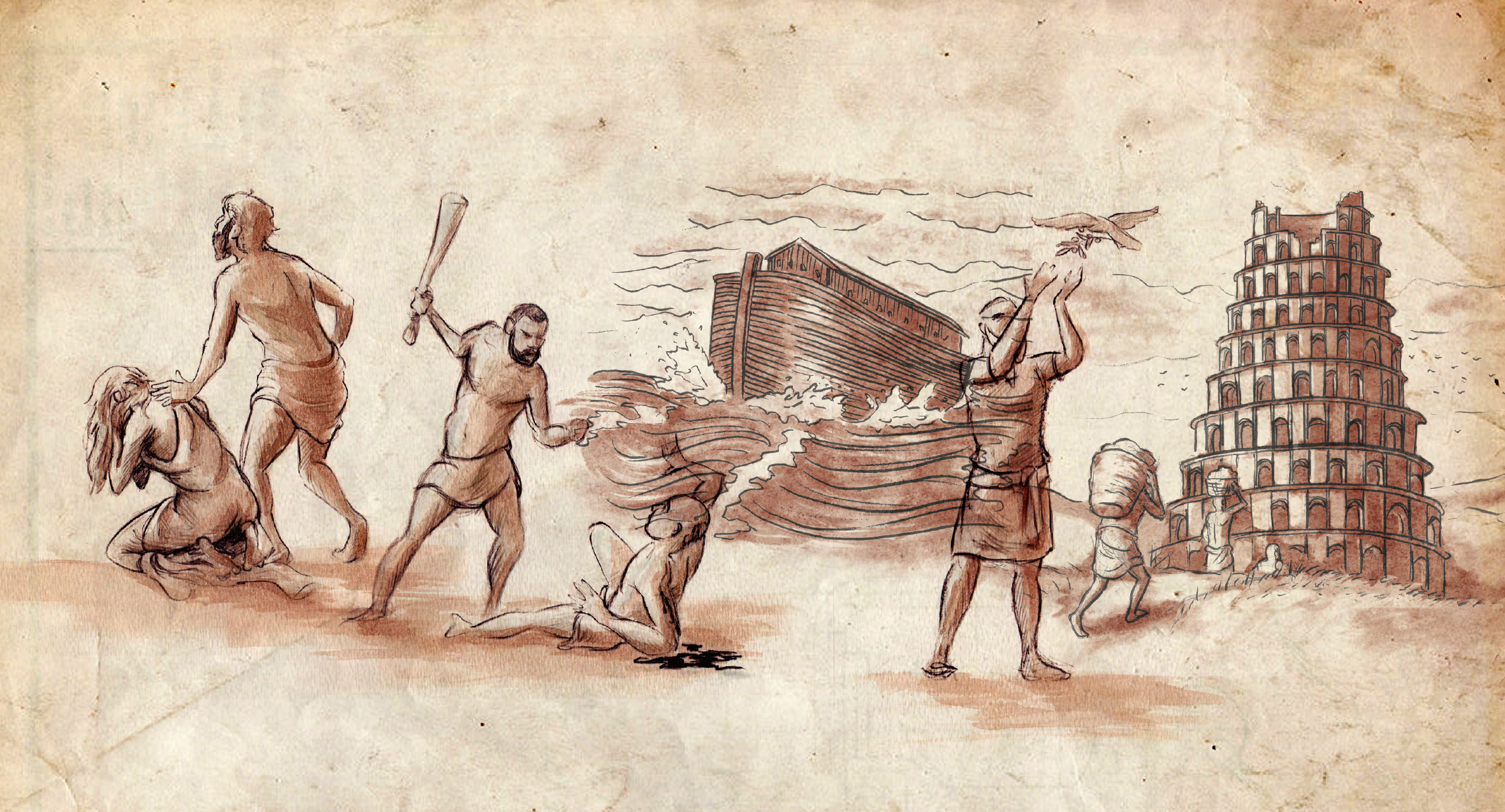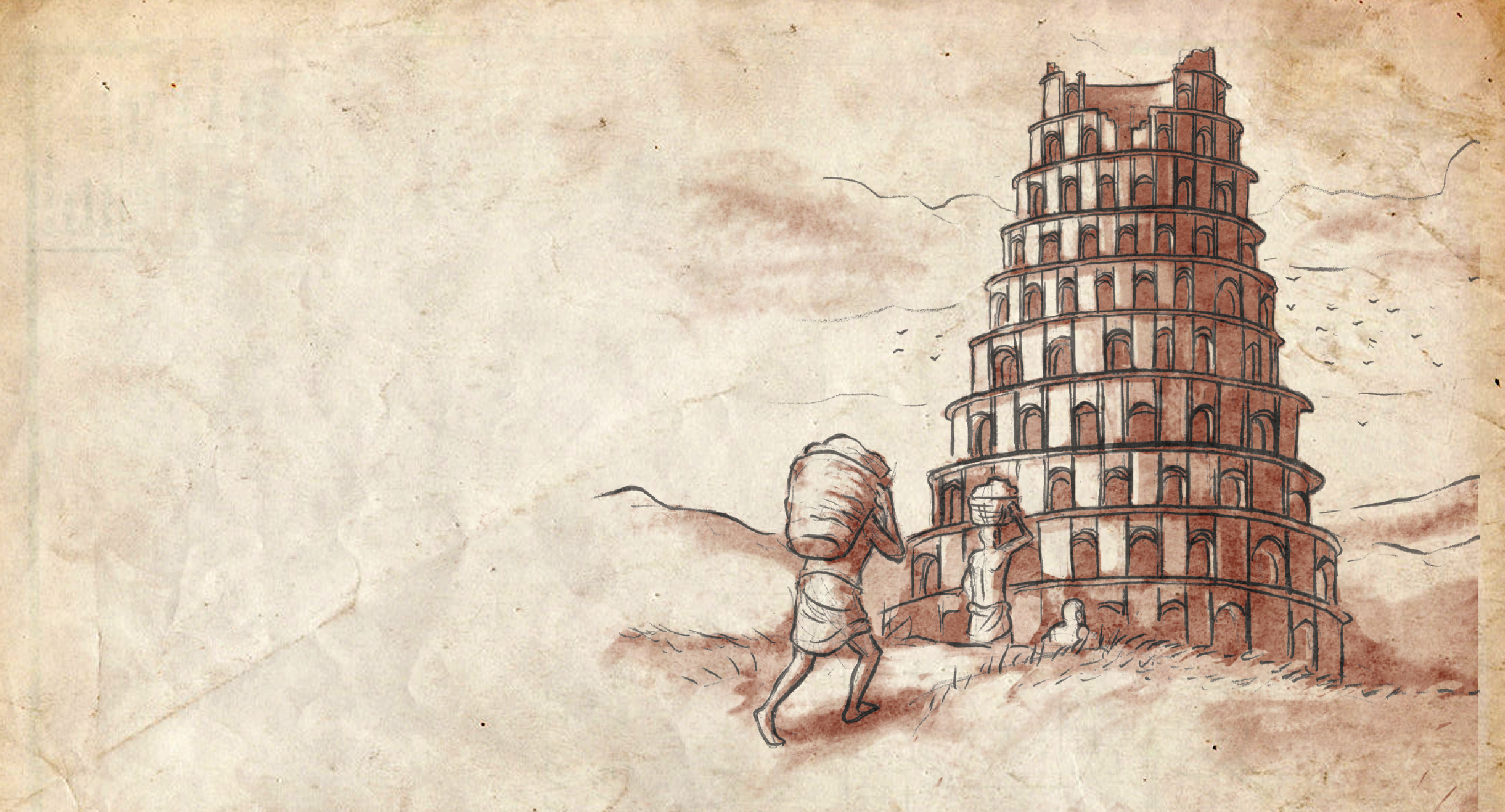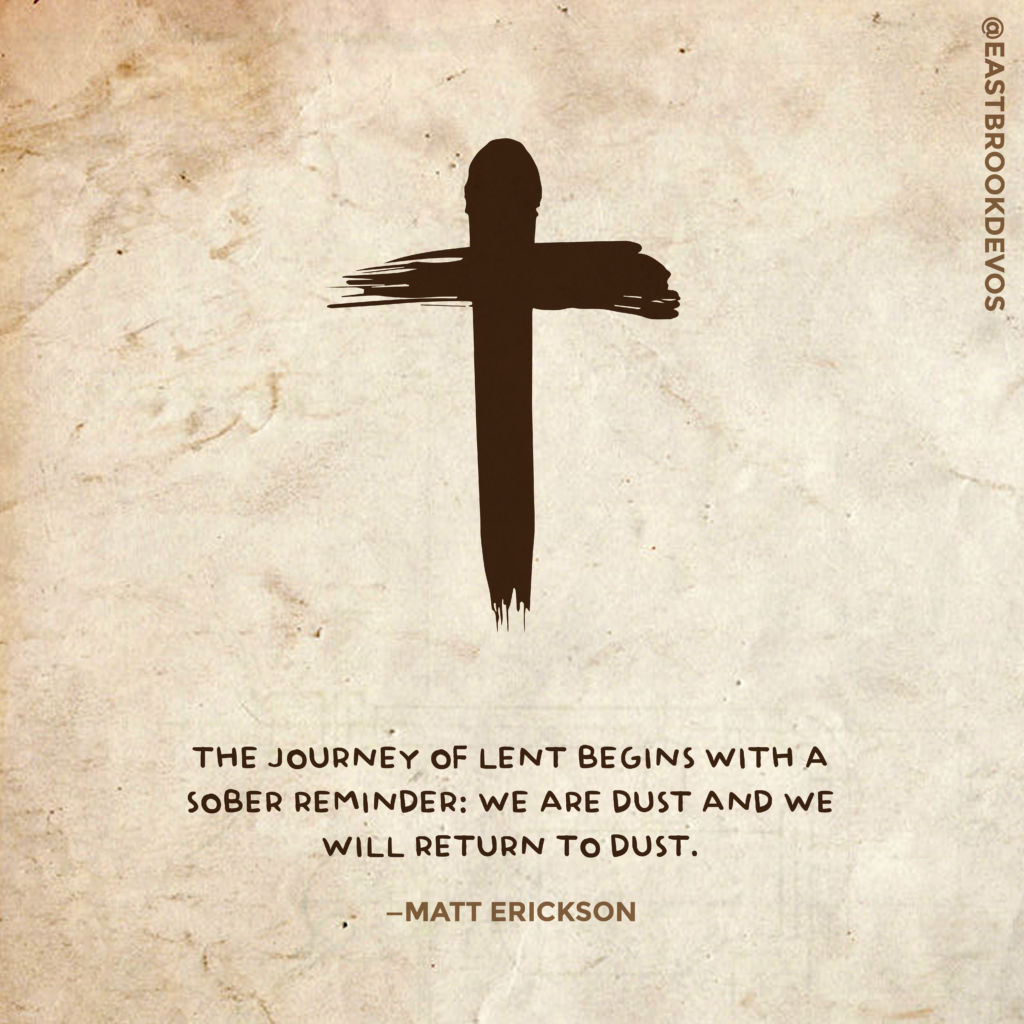“By the sweat of your brow
you will eat your food
until you return to the ground,
since from it you were taken;
for dust you are
and to dust you will return.” (Genesis 3:19)
The journey of Lent begins with a sober reminder: we are dust and we will return to dust. Earlier, we’re told in Genesis 2 that “the LORD God formed a man from the dust of the ground and breathed into his nostrils the breath of life, and the man became a living being” (2:17). The man (adam) was formed out of the dust (adamah), or mud, and filled with the breath of God before being placed in God’s Garden in the land of delights (Eden). The earthiness of humanity in Genesis 2 feels freighted with purpose and beauty from God.
But in Genesis 3, after the man and woman assert their autonomy from God, a series of curses come upon humanity and the creation. Now, the man will work the soil with great trouble instead of the labor of delight. This sweaty toil will continue until the man (adam) returns to the dust (adamah). The idea of being made from dust now holds a heaviness for us with a dark destiny at its end.
Most of the time we avoid the dark destiny of our dust-formed lives. There are entire industries and vocations dedicated to distracting us from death. This may seem like a good thing until some unexpected diagnosis or fearful event brings us face-to-face with our mortality. Suddenly everything shifts. We must consider our end and are often unprepared for that reality.
The journey of Lent begins with an invaluable gift to counteract our escapist tendencies. The traditional beginning of Lent with Ash Wednesday combines the application of ashes with the stark statement of Genesis 3:19, “for dust you are and to dust you will return.” It is a reminder that the fractures of sin touch our lives and we, too, are lost apart from the intervention of God. It is true, as Paul writes, that “the wages of sin is death.” It is good to remember that reality. It is good to see our sin and its weight. It is good to consider the seriousness of death that we might live in humility before God and others. Thank God for the remainder of that statement from Paul: “For the wages of sin is death, but the gift of God is eternal life in Christ Jesus our Lord” (Romans 6:23).
So, friends, let us enter this journey of Lent in all humility and sober reflection. Let us pray with the psalmist, “Teach us to number our days, that we may gain a heart of wisdom” (Psalm 90:12).
For Reflection:
- Think of a time when you took a risk to follow Christ. What was the fruit of that obedience?
- How are God’s good gifts sometimes hidden by struggles?
Recommended Posts

Practice: Examen
April 8, 2023

True Injustice
April 7, 2023

A New Mandate
April 6, 2023



